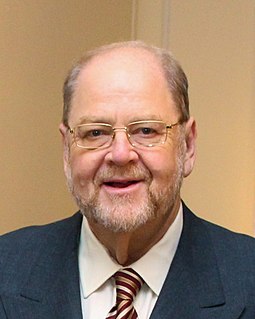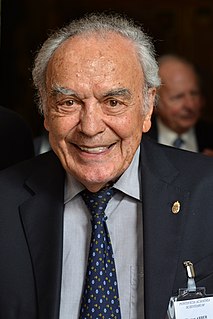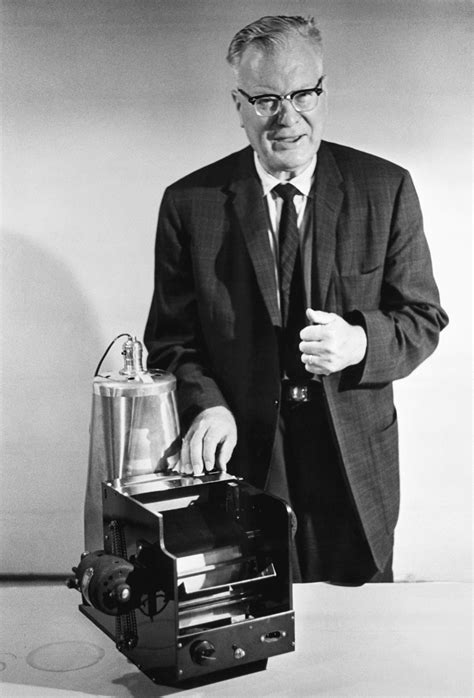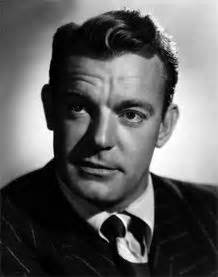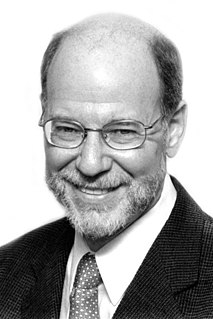A Quote by James Rothman
I became aware of the very complex internal organization in a cell from the basic science classes, and it made me think about how all that could work. It seemed like a great mystery, especially how organelles in the cell can be arranged in three dimensions, and how thousands of proteins could find their way to the right location in the cells.
Related Quotes
In science there is something known as a stem cell. A stem cell is an undifferentiated cell which has not yet decided whether it's gonna be a cell of your brain or a cell of your heart or of your finger nail. But science is learning how to coax, how to manipulate, the raw material of life that we call stem cell to become any cell of the body. I think that God is the stem cell of the universe.
Although a biologist, I must confess I do not understand how life came about... I consider that life only starts at the level of a functional cell. The most primitive cells may require at least several hundred different specific biological macro-molecules. How such already quite complex structures may have come together, remains a mystery to me. The possibility of the existence of a Creator, of God, represents to me a satisfactory solution to this problem.
It is easy to make out three areas where scientists will be concentrating their efforts in the coming decades. One is in physics, where leading theorists are striving, with the help of experimentalists, to devise a single mathematical theory that embraces all the basic phenomena of matter and energy. The other two are in biology. Biologists-and the rest of us too-would like to know how the brain works and how a single cell, the fertilized egg cell, develops into an entire organism
There are thousands of proteins in the cells, some of them very large chains of molecules. And the cell doesn't function if one of those chains of molecules isn't there, and you start looking at the complexity of life and the mystery of life, and then start thinking about things like the twenty universal constants, that if any one of them from Plank's minimum to the mass of a proton, if one of them is the tiniest bit off, there would be no life or possibility of it in the universe.
Biology is a science of three dimensions. The first is the study of each species across all levels of biological organization, molecule to cell to organism to population to ecosystem. The second dimension is the diversity of all species in the biosphere. The third dimension is the history of each species in turn, comprising both its genetic evolution and the environmental change that drove the evolution. Biology, by growing in all three dimensions, is progressing toward unification and will continue to do so.
